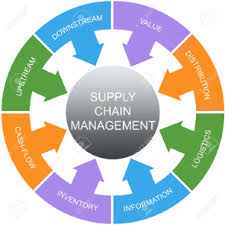Training Course on Maritime Supply Chain Management
Training Course on Maritime Supply Chain Management delivers a holistic approach to managing maritime supply chains by integrating global logistics strategies, port terminal operations, and digital transformation trends within the maritime sector.
Skills Covered

Course Overview
Training Course on Maritime Supply Chain Management
Introduction
In today’s interconnected global economy, efficient Maritime Supply Chain Management (MSCM) is crucial for trade facilitation, economic development, and competitive advantage. As over 90% of global trade is conducted via sea routes, understanding the dynamics of port operations, shipping logistics, regulatory compliance, and intermodal transport is vital. This training course delivers a holistic approach to managing maritime supply chains by integrating global logistics strategies, port terminal operations, and digital transformation trends within the maritime sector.
With increasing complexities like geopolitical risks, environmental regulations, and digital disruptions, maritime professionals must adapt with resilient, sustainable, and agile supply chain models. This course equips participants with cutting-edge knowledge and tools, focusing on smart shipping, green ports, IoT-enabled tracking, and AI-driven forecasting. It is designed to develop strategic thinking and operational excellence across the maritime logistics ecosystem.
Course Duration
5 days
Course Objectives
- Understand the fundamentals of Maritime Supply Chain Management.
- Explore Global Shipping Networks and route optimization.
- Analyze Port Logistics and Terminal Operations.
- Evaluate the role of Maritime Law and Regulatory Compliance.
- Apply Risk Management Strategies in maritime logistics.
- Embrace Digital Transformation and Smart Port Technologies.
- Assess Sustainable Shipping Practices and green initiatives.
- Master Freight Forwarding and Customs Procedures.
- Utilize Big Data and Predictive Analytics in logistics planning.
- Implement Blockchain for Maritime Trade Documentation.
- Explore Supply Chain Resilience and Crisis Management.
- Design Efficient Intermodal Transport Solutions.
- Improve Inventory Visibility and Real-time Tracking Systems.
Organizational Benefits
- Enhanced logistics efficiency and reduced shipping costs.
- Improved regulatory compliance and risk mitigation.
- Strengthened global trade competitiveness.
- Adoption of innovative maritime technologies.
- Empowered workforce with industry-recognized certification.
- Enhanced sustainability through eco-friendly shipping practices.
- Optimized port operations and intermodal integration.
- Boosted customer satisfaction through timely deliveries.
Target Participants
- Shipping and Port Managers
- Freight Forwarders and Logistics Experts
- Supply Chain and Procurement Professionals
- Maritime Transport Authorities
- Customs and Trade Compliance Officers
- Marine Engineers and Operations Managers
- Government Officials in Transport and Trade
- Technology Providers in Maritime Logistics
Course Outline
Module 1: Introduction to Maritime Supply Chain Management
- Basics of global supply chains
- Maritime logistics landscape
- Importance of sea transport
- Stakeholders in MSCM
- Trade flow dynamics
Module 2: Port and Terminal Operations
- Port functions and structure
- Cargo handling techniques
- Terminal management systems
- Berth scheduling
- Port KPIs
Module 3: Shipping Network Design and Freight Management
- Route optimization techniques
- Carrier selection
- Freight rate management
- Shipping contracts
- Incoterms overview
Module 4: Maritime Risk and Compliance Management
- Maritime law basics
- Compliance with IMO standards
- Security protocols (ISPS)
- Cargo insurance
- Risk assessment frameworks
Module 5: Digital Technologies in Maritime Logistics
- Smart shipping systems
- IoT-enabled tracking
- Blockchain for bills of lading
- Automation in port operations
- Maritime ERP solutions
Module 6: Sustainable Maritime Supply Chains
- Green port initiatives
- Fuel alternatives and emission controls
- Waste and ballast water management
- Carbon footprint assessment
- ESG compliance in shipping
Module 7: Customs and Trade Facilitation
- Customs clearance processes
- HS Codes and documentation
- Trade facilitation agreements
- Freight forwarding procedures
- Cross-border logistics
Module 8: Crisis Management and Resilience Building
- Disruption management
- Emergency logistics planning
- Cybersecurity in shipping
- Resilience modeling
- Business continuity planning
Training Methodology
- Instructor-led expert sessions
- Real-life case studies and simulations
- Interactive group discussions
- Practical exercises and role plays
- Online tools and digital platforms
Register as a group from 3 participants for a Discount
Send us an email: info@datastatresearch.org or call +254724527104
Certification
Upon successful completion of this training, participants will be issued with a globally- recognized certificate.
Tailor-Made Course
We also offer tailor-made courses based on your needs.
Key Notes
a. The participant must be conversant with English.
b. Upon completion of training the participant will be issued with an Authorized Training Certificate
c. Course duration is flexible and the contents can be modified to fit any number of days.
d. The course fee includes facilitation training materials, 2 coffee breaks, buffet lunch and A Certificate upon successful completion of Training.
e. One-year post-training support Consultation and Coaching provided after the course.
f. Payment should be done at least a week before commence of the training, to DATASTAT CONSULTANCY LTD account, as indicated in the invoice so as to enable us prepare better for you.